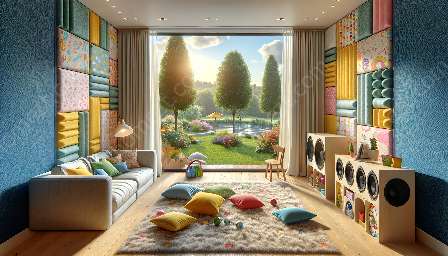Noise pollution can have a significant impact on children's ability to study and sleep, affecting their physical and mental well-being. This article explores the effects of noise pollution on children, strategies for noise control in their rooms, and measures for reducing noise in homes.
Understanding the Impact of Noise Pollution on Children
Noise pollution can disrupt children's study routines and sleep patterns, leading to decreased academic performance and increased stress levels. Excessive noise exposure can also contribute to irritability, difficulty concentrating, and a negative impact on overall cognitive development.
Effects on Study and Academic Performance
When children are exposed to high levels of noise, especially during study or homework time, it can impair their ability to focus and retain information. This can lead to decreased academic performance and hinder their learning progress.
Impact on Sleep Quality
Noise pollution can also disrupt children's sleep, leading to difficulties falling asleep, frequent awakenings during the night, and overall poor sleep quality. This can result in tiredness, irritability, and impaired daytime functioning.
Strategies for Noise Control in Children’s and Teens' Rooms
Implementing effective noise control strategies in children's and teens' rooms is crucial for creating a conducive study and sleep environment. Consider the following strategies:
- Soundproofing: Use sound-absorbing materials such as carpets, rugs, and curtains to minimize noise transmission.
- Noise-Canceling Devices: Install white noise machines or use earplugs to mask unwanted noise and promote better sleep.
- Quiet Study Areas: Create designated study areas in the home that are free from noise distractions, allowing children to focus and concentrate effectively.
- Noise-Reducing Furniture: Choose furniture and decor that help dampen noise, such as padded headboards and acoustic panels.
Noise Control in Homes
Reducing noise pollution in homes is essential for maintaining a peaceful and healthy environment for children. Consider the following noise control measures:
- Proper Insulation: Ensure that windows, doors, and walls are well-insulated to minimize external noise intrusion.
- Noise-Reducing Materials: Opt for noise-absorbing materials when renovating or furnishing the home to reduce reverberations and echoes.
- Limiting Recreational Noise: Encourage family members to engage in noisy activities, such as listening to music or playing instruments, in designated areas away from study and sleep spaces.
- Establishing Quiet Hours: Set specific times during the day when the household agrees to minimize unnecessary noise, allowing for periods of quiet and relaxation.


